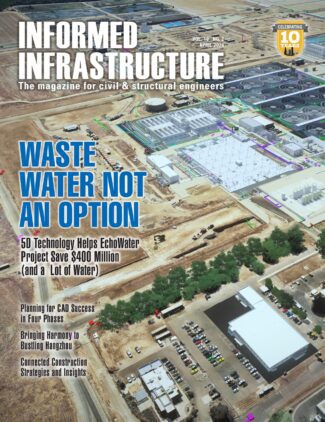Paris, Montreal and Washington D.C., Sept. 11, 2013”According to Euroconsult's latest research report,“Satellite-Based Earth Observation: Market Prospects to 2022,” the number of Earth observation (EO) satellites launched by civil government and commercial entities is expected to more than double over the next decade to 360 satellites, translating into $35.8 billion in manufacturing revenues over 2013 to 2022, an 88% increase over the previous decade. New government and commercial entrants are anticipated, with organizations from 42 countries expected to have launched at least a first-generation EO satellite by 2022.
The market for commercial EO data was valued at $1.5 billion in 2012. Growth slowed to 7% over 2011 as a result of the stabilization of U.S. defense procurement; however North America maintains the largest market share with 55% of the total commercial data market. The U.S. NGA will also remain the first customer of commercial data in 2013 despite its reduction in data procurement, an action which led to the combination of the U.S. operators DigitalGlobe and GeoEye in 2013. The net effect of this reduced procurement over 2012 to 2013 will however result in 0% growth in the industry, a figure which disguises growth opportunities elsewhere.
Emerging programs to significantly affect manufacturing landscape
Although manufacturing revenues will experience a significant rise, the average cost of an EO satellite (excluding meteorology) continues to fall. This is due in the main part to a growing number of satellites being launched from more cost-sensitive emerging national programs. In total over 2013-2022, 69% of EO satellites will cost less that $100 million (compared to 56% in the last decade). While these satellites may not have the same capabilities as higher precision systems (in terms of ground and spectral resolutions, accuracy and agility), their development fulfills a role by assisting in the advancement of a local space industry in these emerging space nations through technology transfer, while also meeting local requirements for data. Prime manufacturers providing export solutions to countries wishing to develop these satellites will be required to continue providing technology transfer and training solutions within the procurement contract. As emerging programs continue to mature, it is expected that satellite investment will increase to support the development of more advanced technologies as cost-benefit is proven.
The percentage of high-cost ($200 million plus) satellite missions is expected to remain stable (10% to 11%), and thus absolute numbers will also increase. This is in effect creating a polarization in satellite cost between higher-end missions requiring significant R&D to support sensor design for government agency environment monitoring missions (such as from NASA, ESA, JAXA) or precision accuracy commercial satellites (such as from DigitalGlobe or Astrium) and the aforementioned lower-cost missions.
This creates a dilemma for the satellite industry, particularly North American and European suppliers; should they concentrate on their core markets currently under budgetary pressure in supplying high-end solutions, or establish lower-cost business lines to support the growing export to emerging programs?, said Adam Keith, Director of Space and Earth Observation at Euroconsult. Higher cost export missions are likely to remain more limited, and restricted to defense-orientated missions, such as the recent UAE FalconEye procurement to Astrium and Thales Alenia Space.
Diverse application sectors to push the market
The EO commercial data market is expected to reach $3.5 billion by 2022. Despite relatively slow growth in North America and Europe, demand in all other regions remains in double-digits: Latin America, Russia & CIS, Asia, and the Middle East all report 15%+ growth (5 year CAGR). Data demand is high to support wider economic growth with applications spanning natural resources monitoring, engineering and infrastructure, and defense.
Within application sectors, defense is expected to remain the first application area. Growth in non-U.S. defense markets remain high at 11% (5 year CAGR) with commercial companies having continued success in rolling out direct access contracts to defense users globally. Defense represented 65% of the total commercial data market in 2012. By comparison, natural resources monitoring and energy are the next most significant sectors representing 8% of the total market. Growth in these markets, and infrastructure and engineering in particular, is expected to remain robust as regional economic growth continues. The fast development of the location-based services sector will further foster growth through the thriving demand of data to assist Internet and hand-held devices, and potential spin-off applications to support market and business intelligence applications.
Companies and investors are keeping a close eye on these evolving application sectors. As natural resources, engineering and LBS services continue to grow, companies investing in the EO sector will need to analyze alternative business solutions. The next decade will see many changes, led by emerging markets regions and sectors, concluded Keith.
About the Report
“Satellite-Based Earth Observation, Market Prospects to 2022 “ is the only report providing industry forecasts, assessment of business opportunities and analysis of the entire value chain for this growing segment of the satellite industry. The 6th edition of this landmark report includes a detailed breakdown of application sectors within each region along with consolidated forecasts per application sector and per region.
About Euroconsult
Euroconsult is the leading global consulting firm specializing in space markets. As a privately-owned, fully independent firm, we provide first-class strategic consulting, develop comprehensive research and organize executive-level annual summits for the industry. With 30 years of experience, Euroconsult is trusted by over 560 clients in 50 countries. Euroconsult is headquartered in Paris, with offices in Montreal and Washington, D.C.

